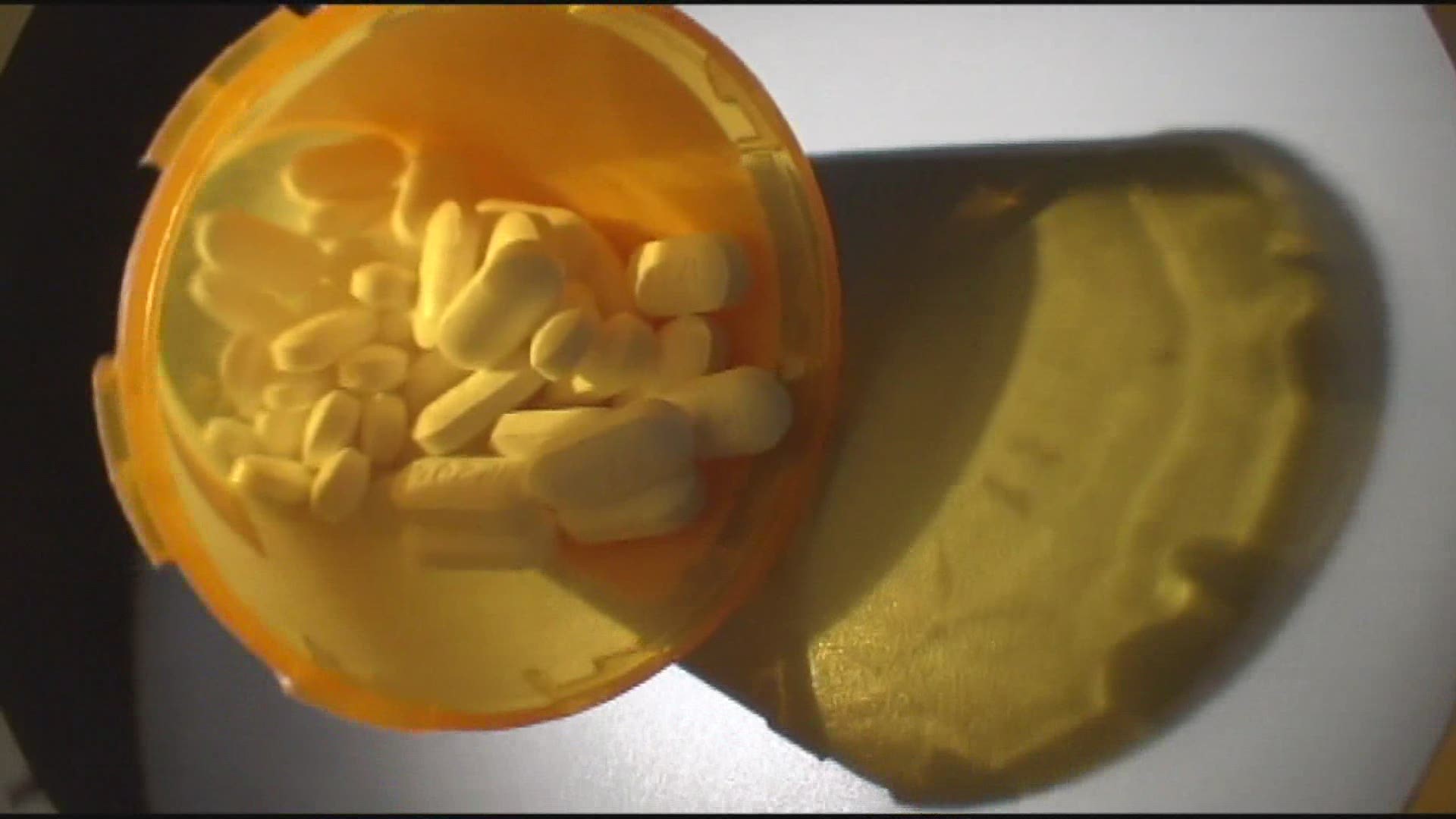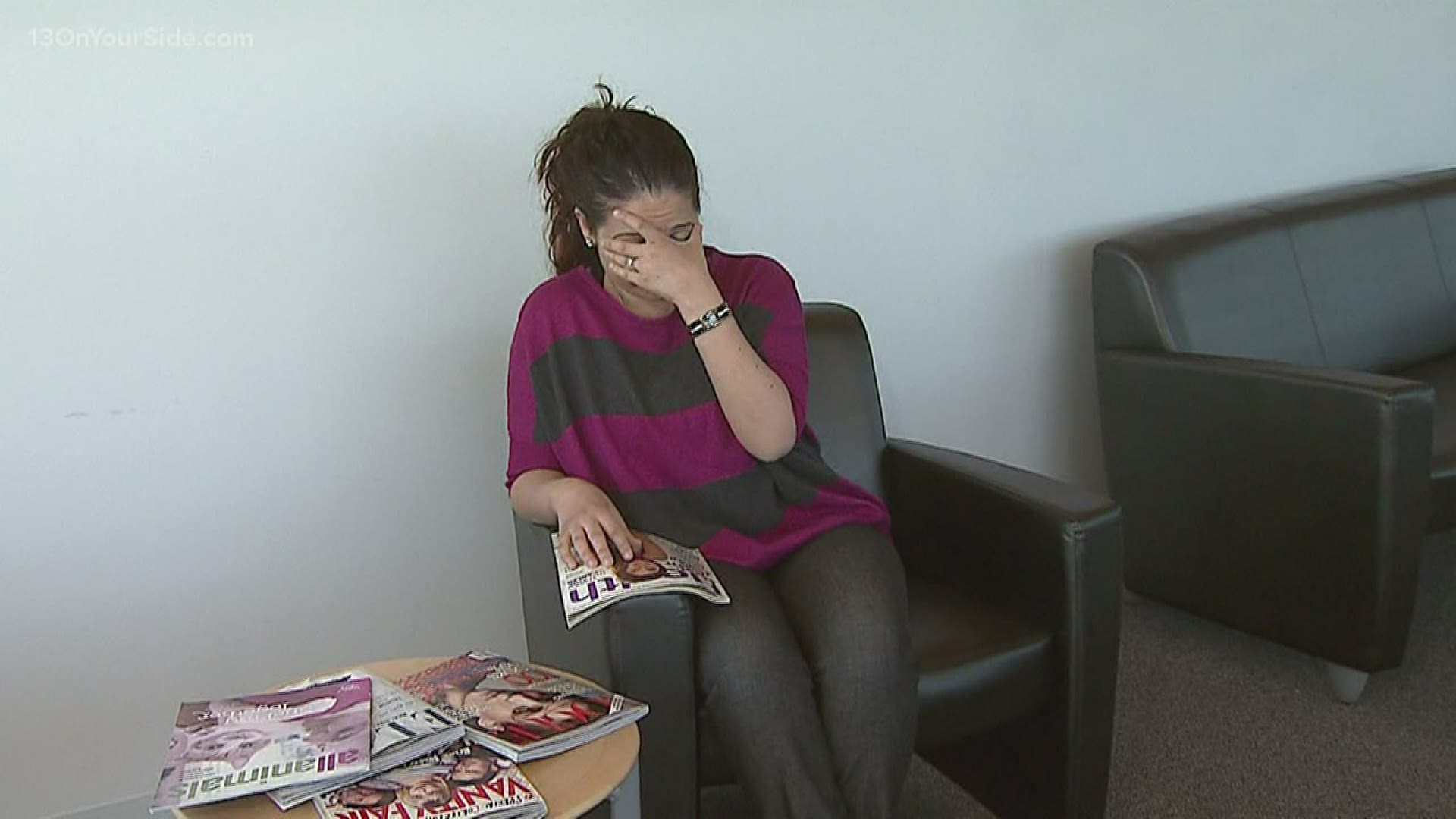GRAND RAPIDS, Mich. — New data from the state of Michigan show opioid use has surged with the COVID-19 pandemic. The statistics released through the Michigan Department of Health and Human Services indicate the number of opioid overdoses jumped 33% between April and May.
"Emergency Medical Services (EMS) and emergency departments (EDs) in Michigan have both seen substantial increases in opioid overdoses since the beginning of the COVID-19 epidemic. These increases are a tragic reminder of the continued toll of the opioid epidemic, and the Michigan Department of Health and Human Services (MDHHS) urges anyone with opioid use disorder to carry naloxone and practice other safety measures to prevent overdose deaths," according to the press release issued this week.
MDHHS also indicated "EMS responses for opioid overdoses from April through June 2020 were 26 percent higher than the same period in 2019."
Vicki Kavanaugh, a spokesperson for the TalkSooner initiative, says the fears of mental health and substance abuse workers are being realized.
"You know, we've been waiting for the impact of COVID-19 to hit and I think now we're starting to see that," she says. "These are really sobering statistics about opioid deaths and overdoses. But really across the board, child abuse stats, domestic violence stats all of those are going to start coming out. COVID-19 is a physical issue, but the effects on mental health are going to be with us for years. We need to try to address those as fast and as well as we can."
Kavanaugh is also a prevention and advocacy division team lead for Arbor Circle, which is part of the multi-county coalition that supports TalkSooner.
"One of our catchphrases is talk early, talk often and talk sooner. And so, it's never too early to start preparing your kids to be able to withstand the ups and downs of life," says Kavanaugh. "Right now, we're under tremendous stress and strain and we don't have our normal ways to reach out for support, for help or even to burn off steam. I think all of those are kind of bubbling up. You know, we're going on what five months. It's a very long time."
The state data show the opioid overdoses are up throughout Michigan and for all age groups, expect people over 65. However, experts, including those at the Centers for Disease Control and Prevention, say teens and young adults are vulnerable to high-risk substance use and abuse.
"When we talk about our young people you know we can pull from the opioid statistics or pull from suicide statistics," says Kavanaugh. "When you're a younger person, you can more easily fall into the depression. The major depression episode might happen a little quicker. You don't have what we call life experience to draw upon where you know today is bad, but tomorrow can be better."
She believes that, along with isolation and reduced social supports could be contributing to the climb in opioid use and overdoses.
"The other thing to think about with an opioid overdose is if you've been in recovery and not using and you come under great stress, and you start going back into that cycle of using again, using an opioid can really hit you hard and it can cause an overdose. So, there's a lot of factors that being in something like a pandemic, where we're just cut off from our supports, life is very stressful, and we might reach out to make non-positive choices that we might not otherwise make. That could also be driving these numbers up," she says.
Kavanaugh warns parents not to wait until it's too late to discuss the topic of drug use with their children.
"It's on their radar. They're exposed to stuff that sometimes we wish they weren't exposed to like vaping, drugs sex or relationships. I mean that's all part of growing up. So, I think we need to not worry we're going to put it in their head," she said. "No, you're not going to talk to a 4-year-old about opioids, but you can talk about making healthy choices and how we work to make sure our bodies are healthy, and our minds are healthy. You can work on making sure that you are that trusted source of information and support for your kids from birth to really young adult. You can make sure you have the facts about opioid use or vaping or marijuana. You know talk about the opioid numbers that were released. It's a great teachable moment. Ask, what's an opioid? See if your preteen knows and make sure you do."
The TalkSooner website and app offers tips and advice on how to begin and manage these conversations.
RELATED VIDEO:
►Make it easy to keep up to date with more stories like this. Download the 13 ON YOUR SIDE app now.
Have a news tip? Email news@13onyourside.com, visit our Facebook page or Twitter. Subscribe to our YouTube channel.


